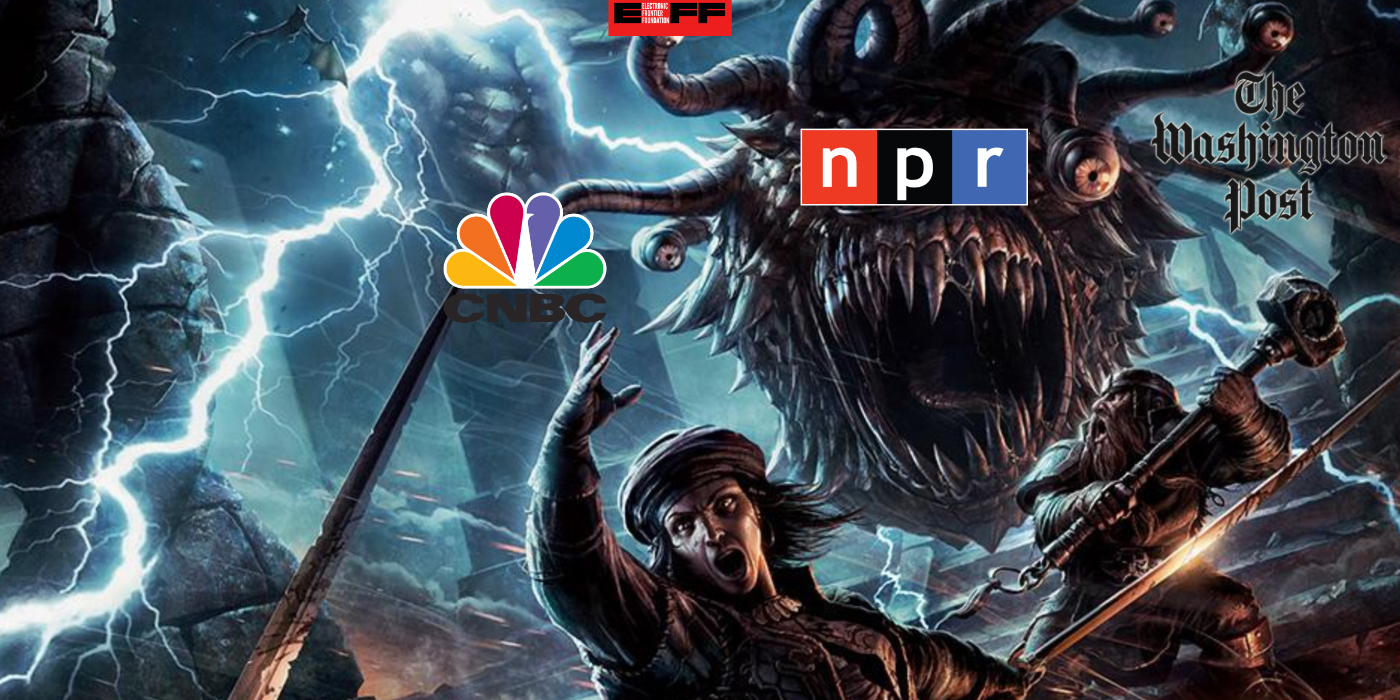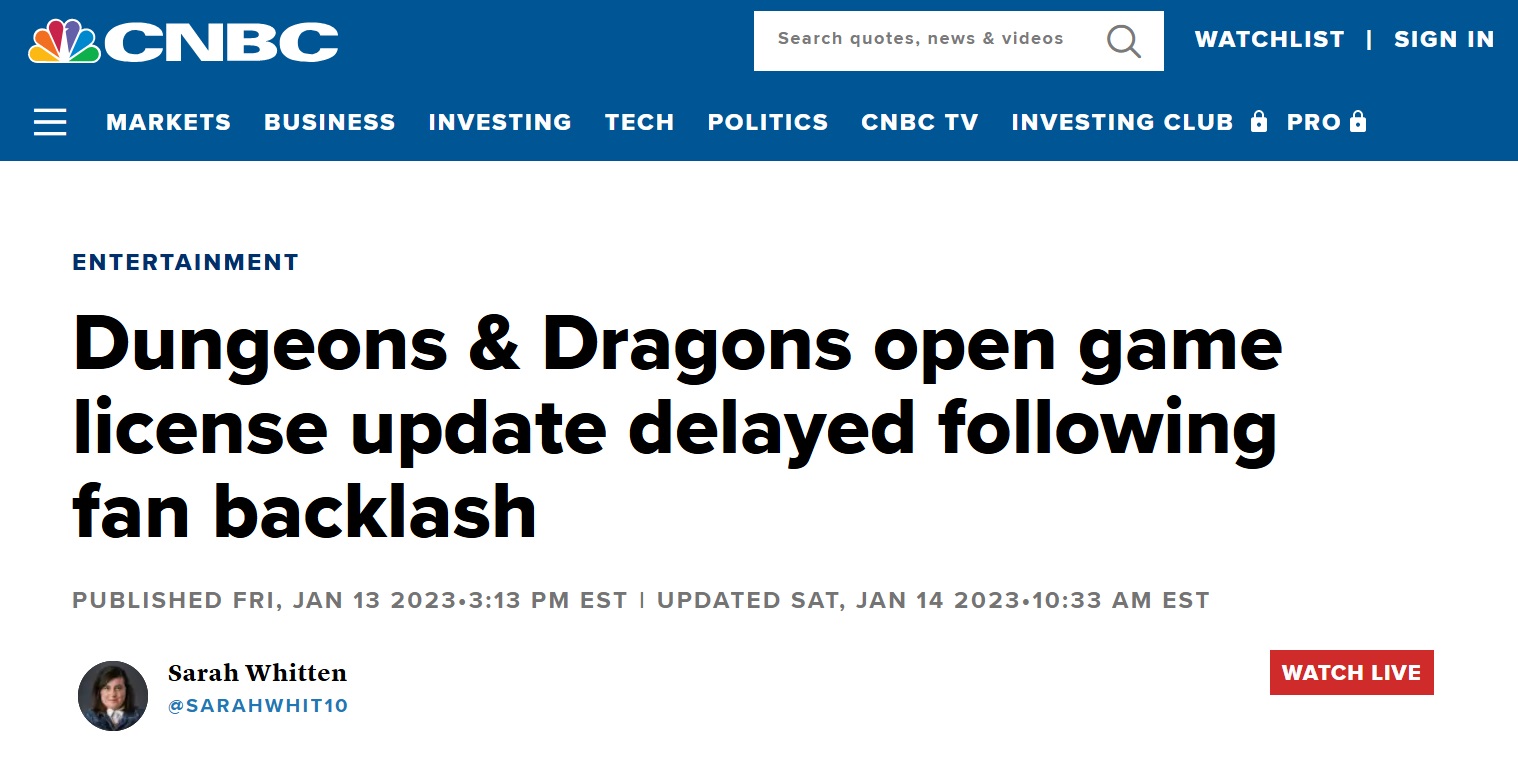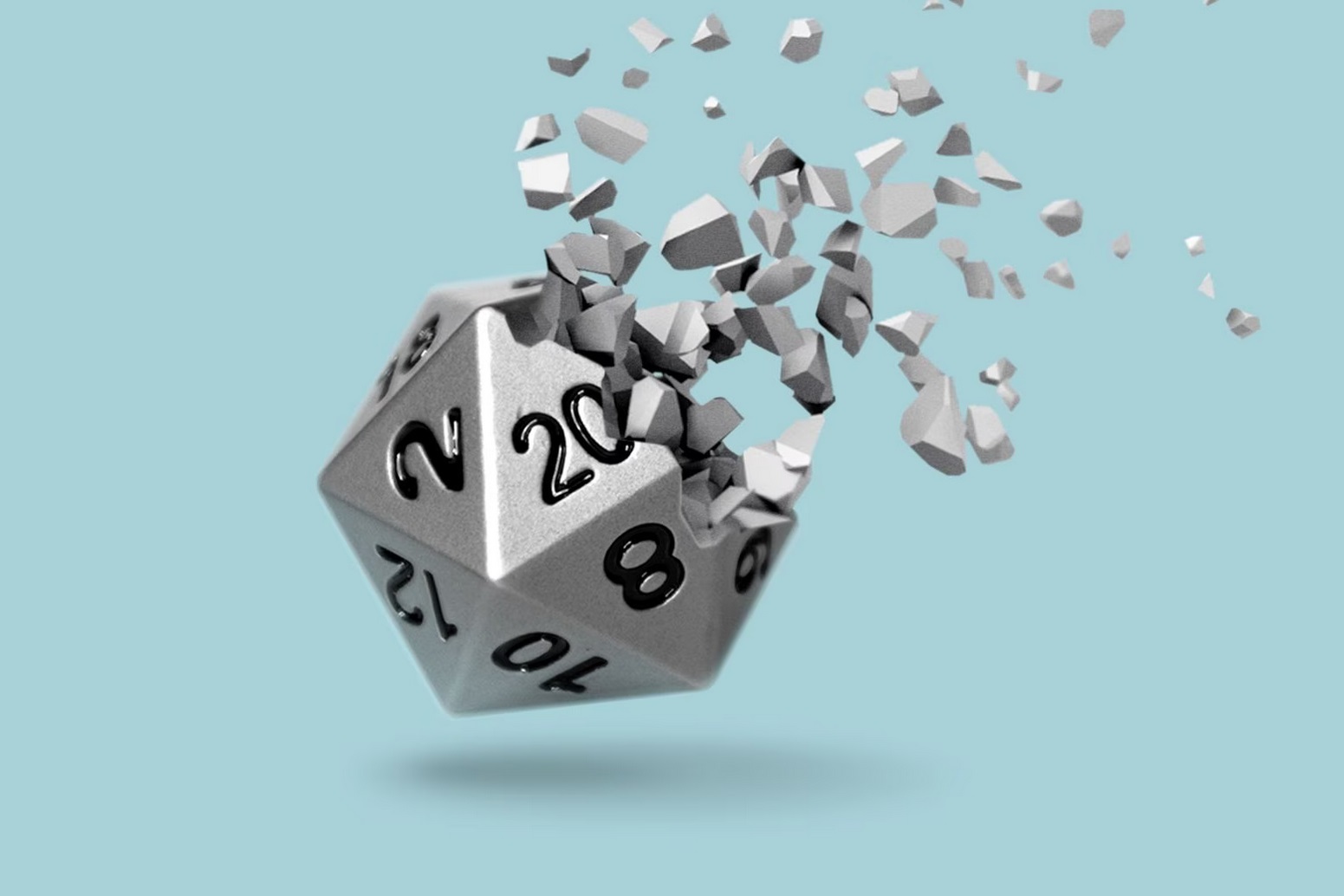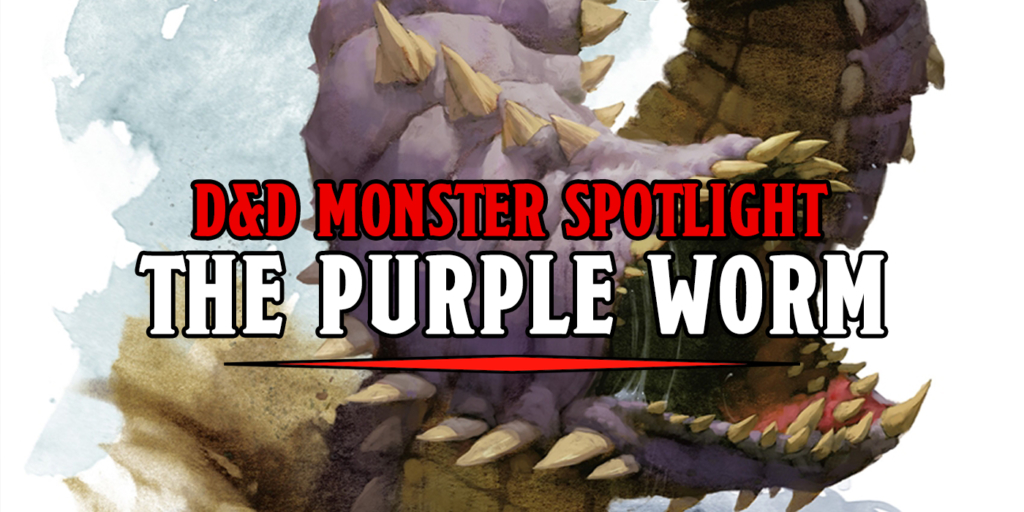D&D’s OGL Drama Spills Over Into the Mainstream


What might have been outrage confined to a smallish section of the internet has spilled over into the mainstream. Repeatedly.
From the Washington Post to CNBC and now NPR, D&D’s OGL saga has brought Dungeons & Dragons to the wider world. Of course, this isn’t the first time D&D has popped up in the much broader world.
But this time is one of the first times that the D&D community is making the news, as opposed to a celebrity playing the game or a panic being raised about how it will inevitably lead straight to hell. Instead, what’s front and center is the community uproar over WotC’s move to upend 23 years of an industry and the subsequent walking back of changes. Here’s a look at just how far the #OpenDnD story has come.
Breaking Through to the Mainstream
CNBC covered the story fairly early after the #OpenDnD movement caused WotC to cancel their planned update ten years ago, on January 13th, 2023. The last time D&D made CNBC was when Hasbro faced a proxy battle from “activist investor” AltaFox, who had been pushing to spin WotC off from Hasbro, saying that they were the biggest source of revenue for the toy giant.
But now, instead of corporate battles, the focus was on the community itself:
“D&D fans rallied around a petition called #OpenDND, signed by nearly 67,000 people, and began canceling their subscriptions to Wizard’s online toolkit, D&DBeyond, in order to protest changes to the license.
Third-party publishers told CNBC that Hasbro representatives approached high-profile independent content creators late last year to offer them a “sweetheart deal” if they signed on before the new licensing agreement was launched to the public. A document reviewed by CNBC showed a lower royalty rate than what was included in the proposed OGL 1.1.”
The story continued, getting picked up by the Washington Post shortly after D&D Executive Produce Kyle Brinks announced the company was seeking community input for the OGL 1.2.
Again, the story’s focus was on WotC’s impact on its community. Third-party designers and publishers like Sarah Thompson of the Combat Wheelchair and Mike Holik of Mage Hand Press spoke about the community impacts. While the Washington Post focused on how WotC had utilized the OGL initially:
“[The OGL was used to] “capture a lot of the creative energy” in the tabletop scene during the early 2000s, transforming up-and-coming designers into D&D satellite creators.”
The OGL Controversy on NPR
NPR’s story features the reporter who initially broke the story of the OGL 1.1 leak, Linda Codega, as well as Griffin Macaulay of the Griffon’s Saddlebag, there to explain why there’s been such a backlash, not just from people materially affected by the changes, but the larger community during All Things Considered:
See, most people who play D&D customize it. They develop their own rulebooks, their own adventures and characters, their own variants of the game. Not only is that not frowned upon, it has been explicitly legal since the year 2000 per its Open Game License. It allows anyone to take certain parts of Dungeons & Dragons’ intellectual property, adapt it and even sell it without any explicit permissions or royalty payments. For The Griffon’s Saddlebag and many third-party companies, developing these other ways to play the game is a business. But this month, the D&D community faced what it saw as an existential threat.
Whatever happens next, it’s clear that it’s not just contained to one corner of the internet.







